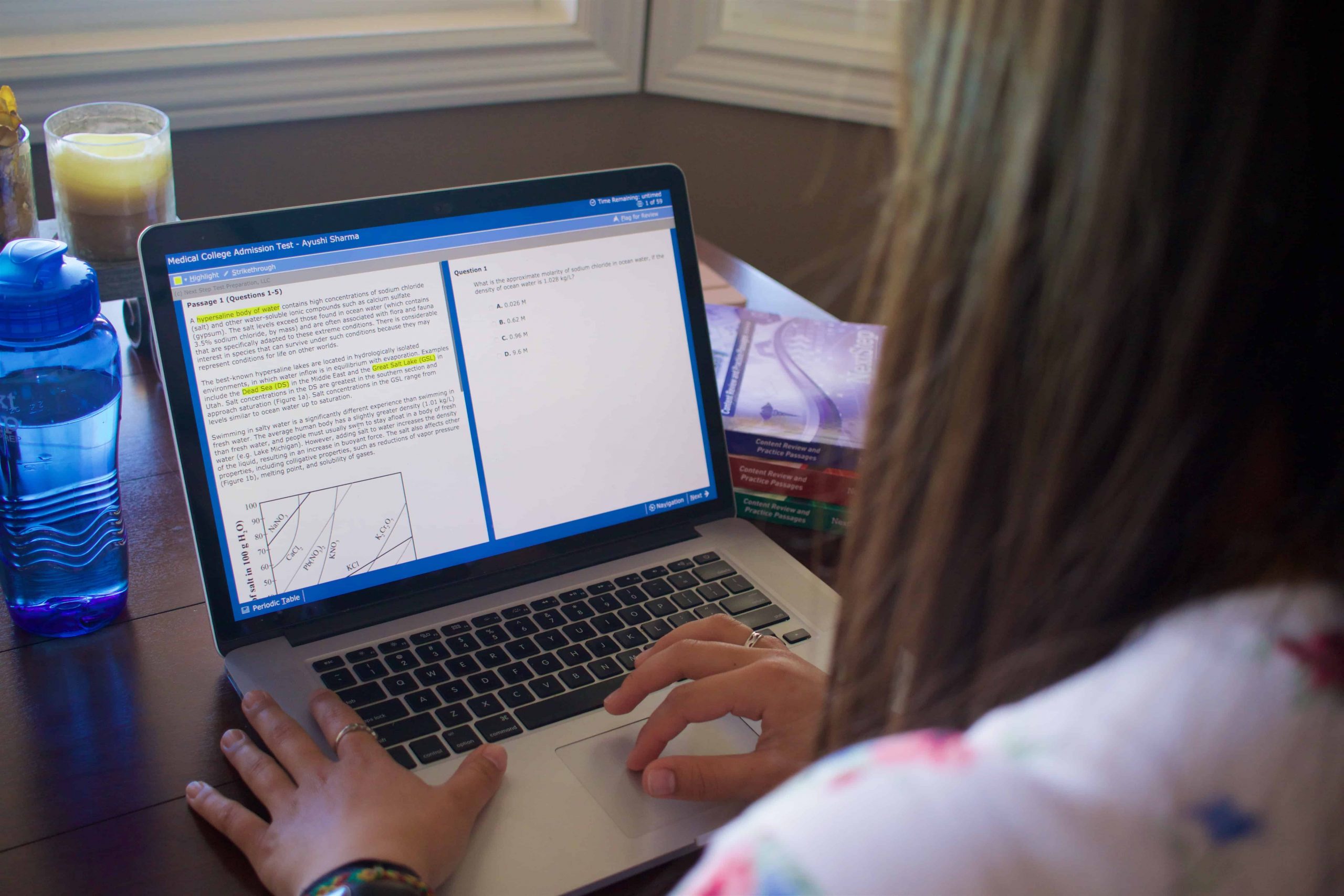
If you’re planning to begin preparing for the MCAT in the near future, you might have heard about the importance of taking a diagnostic exam in the early stages of your prep. It is highly recommended you take a diagnostic exam, which is why we provide a free half-length MCAT diagnostic with our Free Blueprint MCAT Account, but when should you actually incorporate this resource into your study schedule?
The answer to this question is the same for virtually all students:
Take the diagnostic at the very beginning of your MCAT prep, before you even begin studying.
Students are surprisingly resistant to this idea, probably because it’s never pleasant to take a test when you feel unprepared. It can be scary to think about getting a “bad” score on any exam, even a diagnostic, and this feeling causes many students to postpone the diag until they’ve reviewed at least some MCAT content. But don’t fall into this trap – the earlier you take the diagnostic, the better!
So, why is it so important to use the diagnostic exam early on?
For one, it provides a fantastic way to learn how the MCAT is structured, both in terms of passage and question structure and the reasoning demanded. Every day that you delay taking the diagnostic is a day you’ll spend studying for an exam that you aren’t fully familiar with, and this can lead to wasted time. But, even more important is the chance the diagnostic offers you to get to know yourself as an MCAT test taker. You might think that you remember most of the material you learned in pre-med science courses, or perhaps you feel like you don’t recall a single thing. But a diagnostic exam allows you to see firsthand exactly how comfortable you are with the science that you will see over and over on the official MCAT. Your results can then shape your future MCAT prep, as you can devote more time to the sections and topics that gave you the most initial trouble.
Of course, taking an MCAT diagnostic test as early as possible comes with an equally important piece of advice:
Don’t worry about your diagnostic score!
This exam is meant to be a starting point and an opportunity to learn, not a limitation. You quite possibly have the potential for huge improvement, especially if you’ve forgotten much of the basic MCAT science. I’ve personally seen students improve 10, or even 20, points from their initial diag scores, so don’t fret if yours is significantly lower than your goal.
Finally, remember what is quite possibly the most important piece of MCAT advice out there – review every MCAT practice test, including the diagnostic, as carefully as possible. Start keeping a record of the questions you missed and why you missed them, and build onto this record with every new exam you take. Write down any content topics that you were unfamiliar with, and be sure to spend extra time on those topics when you encounter them in future weeks. With this focus, you’ll give yourself the best possible chance of improvement, regardless of your starting score on the diagnostic exam.
After you take your diagnostic, you’ll likely have questions on what your next steps should be. Schedule a free MCAT consultation with our MCAT Advisors to start mapping out your MCAT study plan and prep. We have MCAT tutors, MCAT online prep courses, and more.
Written by Blueprint MCAT (formerly Next Step Test Prep) MCAT experts. An earlier version of this article was posted on July 2, 2018.
Search the Blog

Free Consultation
Interested in our Online MCAT Course, One-on-One MCAT Tutoring or Med admissions packages? Set up a free consultation with one of our experienced Senior Student Advisors.
Schedule NowPopular Posts
-
MCAT Blog What's on the MCAT?
-
MCAT Blog How to Review MCAT Full Lengths

Free MCAT Practice Account
Need great MCAT practice?Get the most representative MCAT practice possible when you sign up for our free MCAT Account, which includes a half-length diagnostic exam and one of our full-length MCAT practice exams.
Learn More







